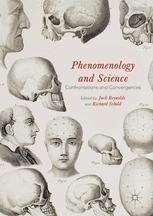

Most ebook files are in PDF format, so you can easily read them using various software such as Foxit Reader or directly on the Google Chrome browser.
Some ebook files are released by publishers in other formats such as .awz, .mobi, .epub, .fb2, etc. You may need to install specific software to read these formats on mobile/PC, such as Calibre.
Please read the tutorial at this link: https://ebookbell.com/faq
We offer FREE conversion to the popular formats you request; however, this may take some time. Therefore, right after payment, please email us, and we will try to provide the service as quickly as possible.
For some exceptional file formats or broken links (if any), please refrain from opening any disputes. Instead, email us first, and we will try to assist within a maximum of 6 hours.
EbookBell Team

4.1
30 reviewsThis book investigates the complex, sometimes fraught relationship between phenomenology and the natural sciences. The contributors attempt to subvert and complicate the divide that has historically tended to characterize the relationship between the two fields. Phenomenology has traditionally been understood as methodologically distinct from scientific practice, and thus removed from any claim that philosophy is strictly continuous with science. There is some substance to this thinking, which has dominated consideration of the relationship between phenomenology and science throughout the twentieth century. However, there are also emerging trends within both phenomenology and empirical science that complicate this too stark opposition, and call for more systematic consideration of the inter-relation between the two fields. These essays explore such issues, either by directly examining meta-philosophical and methodological matters, or by looking at particular topics that seem to require the resources of each, including imagination, cognition, temporality, affect, imagery, language, and perception.